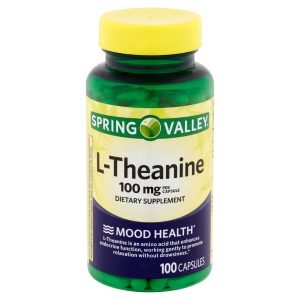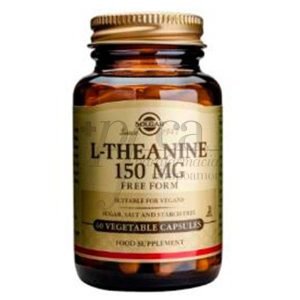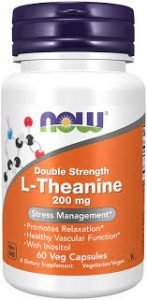L-theanine, an amino acid primarily found in tea leaves, has been the subject of numerous scientific studies due to its potential benefits for human health. This article dives into the effects of L-theanine on the human body and investigates whether this compound holds key benefits that can significantly enhance our overall health and well-being.
Originating from the green tea plant (Camellia sinensis), L-theanine’s relaxing and non-sedative properties have been known for centuries. The compound has an essential role in creating the distinctive taste of green tea, which is a combination of bitterness and sweetness. However, it is the health-enhancing effects of L-theanine that has made it a topic of keen interest.
Health Benefits of L-Theanine

The Neurological Benefits of L-Theanine
One of the most significant potential benefits of L-theanine relates to its impact on mental health and cognitive performance. L-theanine has been shown to cross the blood-brain barrier, directly affecting the brain. When consumed, it promotes relaxation without causing drowsiness, reducing stress, and enhancing cognitive performance and mood.
Research conducted by Juneja et al. (1999) found that L-theanine can induce alpha brain wave activity, a type of brain wave associated with a relaxed yet alert state of mind. This effect may be why many people drink tea as a way to relax or to gather their thoughts.
A study in Nutritional Neuroscience (2016) showed that L-theanine could significantly improve sleep quality, particularly in those who suffer from insomnia. The study concluded that the amino acid’s ability to increase alpha-brain wave activity might help induce sleep and improve sleep quality, without the adverse side effects associated with many sleep-inducing drugs.
Additionally, several studies have suggested that L-theanine may have neuroprotective effects, potentially helping to prevent neurodegenerative diseases such as Alzheimer’s and Parkinson’s. Although these studies are promising, more research is required to conclusively confirm these potential benefits.

The Synergy Between L-Theanine and Caffeine
A particularly intriguing aspect of L-theanine is its synergistic relationship with caffeine. Consuming L-theanine and caffeine together, as you might in a cup of tea, has been found to improve focus, alertness, and cognitive performance beyond the effects of either compound alone.
A study published in Nutritional Neuroscience (2008) showed that the combination of L-theanine and caffeine helped to improve both speed and accuracy on cognitively demanding tasks. It also reduced susceptibility to distractions. This research might explain why many people feel more focused and productive after consuming beverages containing both L-theanine and caffeine, such as green or black tea.

The Cardiovascular Benefits of L-Theanine
Research has also linked L-theanine to cardiovascular health. An animal study published in the journal Life Sciences (2012) found that L-theanine could help reduce blood pressure in hypertensive situations. These findings are significant because high blood pressure is a known risk factor for heart disease and stroke. However, more studies are needed, particularly in humans, to fully understand the implications of these results.

Potential Anti-Cancer Effects of L-Theanine
There is growing interest in the potential anti-cancer effects of L-theanine. Several studies have suggested that L-theanine might boost the effectiveness of certain chemotherapy drugs, reduce the side effects of these treatments, and potentially even inhibit the growth of cancer cells.
A study published in the journal Cancer Letters (2011) found that L-theanine enhanced the anti-tumor activity of doxorubicin, a chemotherapy drug. Another study in Bioscience, Biotechnology, and Biochemistry (2011) found that L-theanine inhibited the growth of liver cancer cells. It’s important to note, however, that while these results are encouraging, they are preliminary. More extensive and diverse studies are needed to establish whether L-theanine could play a role in cancer treatment.

While more research is needed, especially in humans, the evidence to date indicates that L-theanine may offer numerous health benefits. These range from improving cognitive performance and sleep quality to potentially reducing the risk of cardiovascular diseases and enhancing cancer treatments.
It’s important to remember, however, that while L-theanine can be a part of a healthy lifestyle, it’s not a miracle cure for any condition. Maintaining a balanced diet, regular exercise, and a healthy lifestyle, in general, is vital for good health.
As always, before starting any supplement regimen, it’s advisable to consult with a healthcare professional. They can provide guidance based on your unique health circumstances and help ensure that any changes to your diet or supplement routine are safe and effective for you.
In conclusion, L-theanine, a natural compound found primarily in tea, shows significant promise in numerous areas of health and well-being, offering a calming effect without sedation, enhancing cognitive performance, and potentially offering a host of other benefits that are just beginning to be explored. As research continues, we may yet discover even more reasons to enjoy this remarkable compound.

